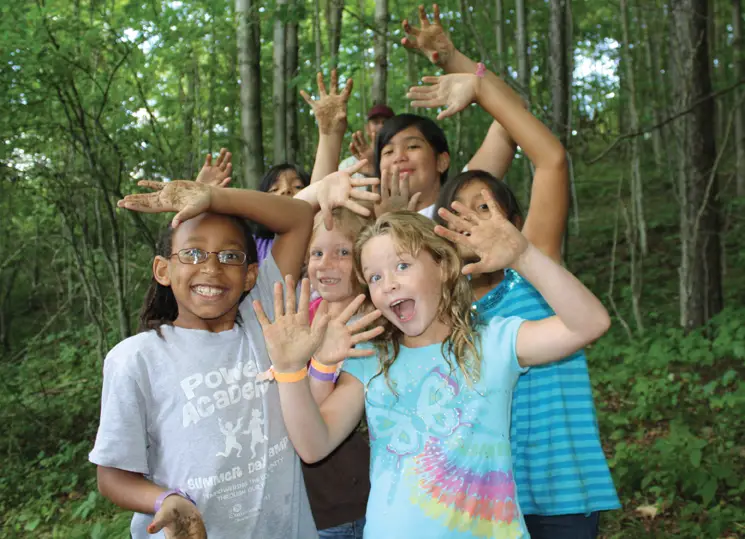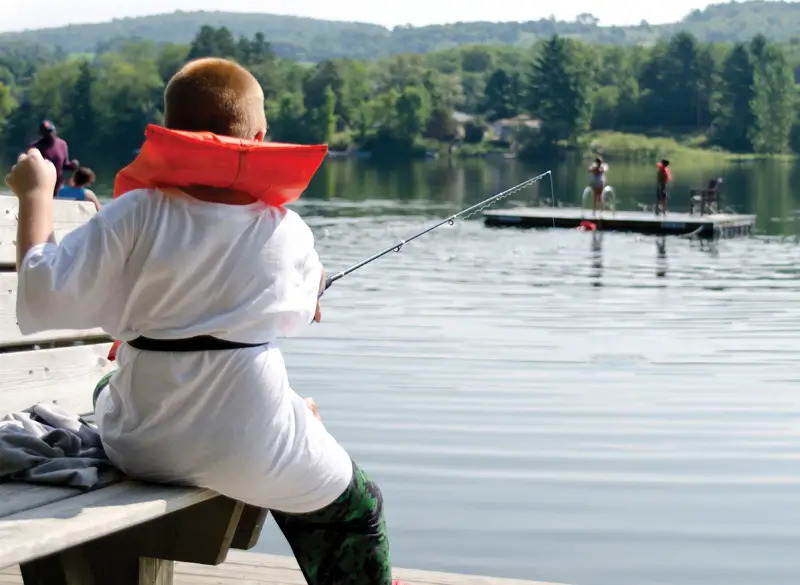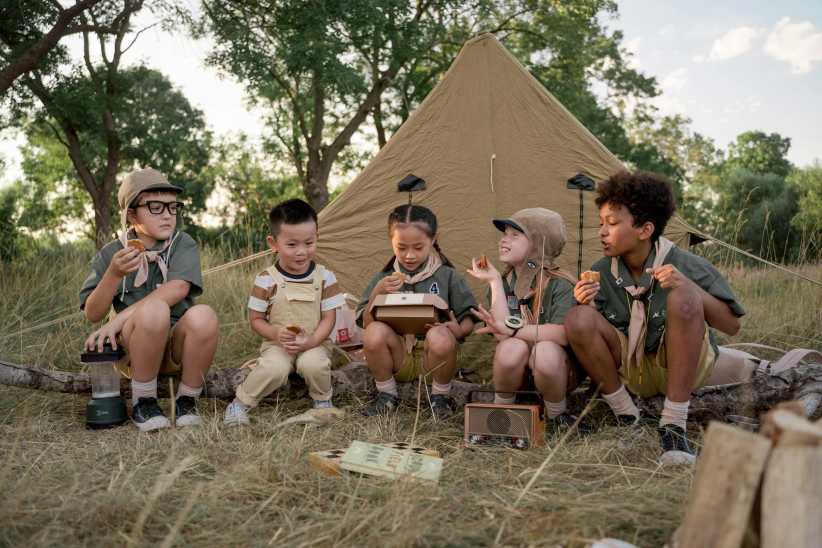Summer camp, and especially sleepaway camp, helps kids develop confidence and independence, and their experiences at camp help them break through their comfort zones, build lasting friendships, and find who they truly are.
Camp, especially sleepaway camp, is a safe environment where children can explore their own identities and develop a truer sense of self.
 Challenges such as “getting along with a new group of peers, learning how to ask for help from others, or taking a manageable amount of risks without a parent following after you,” says family therapist Michael Ungar, Ph.D., combine to present campers with an optimal opportunity for personal development. Children who were once shy and quiet may morph into outgoing individuals. They may find new areas of interest or discover new talents, too.
Challenges such as “getting along with a new group of peers, learning how to ask for help from others, or taking a manageable amount of risks without a parent following after you,” says family therapist Michael Ungar, Ph.D., combine to present campers with an optimal opportunity for personal development. Children who were once shy and quiet may morph into outgoing individuals. They may find new areas of interest or discover new talents, too.
Leiba Gittel Bonnardel, who grew up in Rockland County, saw the transformation firsthand when her son, Gideon, who is now 15 years old, attended sleepaway camp in upstate New York.
“He was always quiet and introverted, having no real personality or definition of himself,” says Bonnardel, who sent her son to Camp L’man Achai. “When Giddy arrived home after the summer, he carried himself with a new disposition.”
Gideon (who has several brothers, each with strong personalities, at home) was given a chance to interact with other children his own age in a nonjudgmental environment. And although the children played competitive games, the level of competition was different from the one often found among a band of brothers.
Gideon also had to learn to work together with others and voice his opinion during his trips to the mountain, where he and several other boys took four hours to build a house made of only what they found in nature. Participation in sporting events helped him become more outgoing and talkative, as well.
Camp helps kids break through their comfort zones.
Children don’t have to attend a religious camp to have a transformative experience.
 Christie Ko, the executive director of Camp Fiver, which is the cornerstone program of the Fiver Children’s Foundation, serves at-risk youth in the New York area with social, personal, and academic-enhancing development programs. Although the foundation is based in New York City, its residential camp is based near Colgate University and provides a home away from home for 500 children who begin attending the program at age 8 and often continue attending Camp Fiver, as well as the organization’s year-round programs, for the next 10 years.
Christie Ko, the executive director of Camp Fiver, which is the cornerstone program of the Fiver Children’s Foundation, serves at-risk youth in the New York area with social, personal, and academic-enhancing development programs. Although the foundation is based in New York City, its residential camp is based near Colgate University and provides a home away from home for 500 children who begin attending the program at age 8 and often continue attending Camp Fiver, as well as the organization’s year-round programs, for the next 10 years.
“Many Fiver kids, when they first come to camp, are experiencing a rural environment for the first time,” says Ko, who relocates her Queens-based family to upstate New York while camp is in session. “Escaping their urban world of concrete and steel for a place with rolling green hills, streams filled with crayfish, and fresh air free from pollution can be truly eye-opening.”
Camp Fiver allows children to feel safe and relaxed in a way they do not experience at home. In 2011, 82 percent of children tried something new at Fiver that they did not get to do anywhere else, Ko says. This pushes children outside of their comfort zones and allows them to take healthy risks.
Camp builds lasting friendships.
Children also learn to support others who are trying new things. “At camp, the façade falls away, allowing children to explore opportunities and to discover who they are and what they are passionate about,” Ko says.
By discovering new talents at camp that they’re able to practice at home, these kids are able to share one another’s growth year after year with their camp friends.
Children are able to develop lasting relationships with people who aren’t part of their immediate family. They may become modern pen pals, exchanging email addresses. This helps children who don’t feel comfortable around their peers in their own neighborhood to have a peer support system.
Counselors often undergo extensive training to learn how to act like guides for children, receiving training in group dynamics, behavior management, cultural competency, and safety. In these roles, counselors are not quite seen as parents or teachers, but they’re also not seen as peers; this middle ground can be quite effective.
“At Fiver, because children come back for 10 consecutive years, there is a continuity to these relationships that is unique,” Ko says. “In a city where children switch schools every few years, it is a rarity to have a caring adult, other than a parent, in one’s life for a long period of time. These relationships with peers and caring adults allow children to feel comfortable to open up about their hopes, fears, and dreams.”
At camp, kids can find their true selves.
One of the major changes that children first make at camp that they are able to internalize is the ability to find balance in their lives. They learn to juggle the variety of things always going on at camp. They are also able to work on balancing personality traits—which parents, teachers, and others back home will recognize, Ko says.
Dr. Ungar, author of The We Generation: Raising Socially Responsible Kids, says: “Camps help children feel in control of their lives, and those experiences of self-efficacy can travel home as easily as a special art project or the pine cone they carry in their backpack.”
“Gideon noticed now that he can be a ‘real cool Jew’ and be his true self by wearing Tzitzis with joy,” says Bonnardel (Tzitzis are knotted ritual fringe attached to a garment, representing the 613 Mitzvos in the Jewish faith.) Even Gideon’s teachers back at school took note of his growth and development, she adds. “Being who he really is has brought him inner contentment—and his face shines as proof!”
Camp Planning Resources
Visit nymetroparents.com/camp for advice on what questions to ask a camp’s director, how to choose a camp for a child with special needs, and much more!
Search nymetroparents.com/camp-guide, our comprehensive camp directory that includes sleepaway camps, traditional day camps, and specialty camps in the NYC area and beyond.













